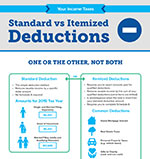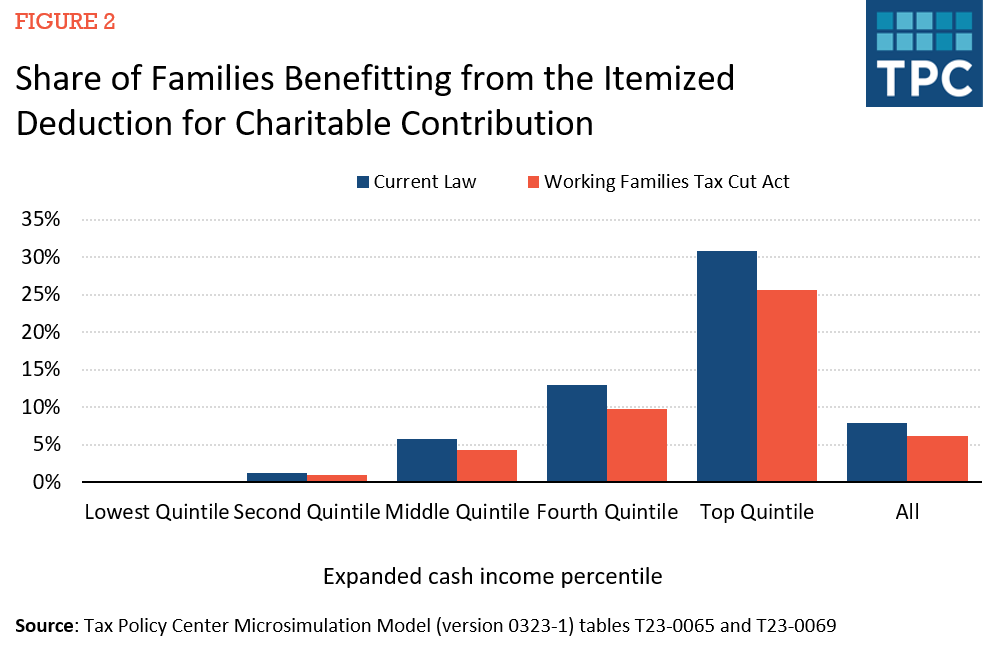The Foreign Earned Income Exemption Explained: A Guide to Enhancing Your Conventional Reduction
The Foreign Earned Income Exemption (FEIE) is an essential tax obligation stipulation for united state residents and resident aliens living abroad. It allows qualified expatriates to exclude a significant portion of their foreign-earned revenue from federal taxes. Recognizing the nuances of FEIE can cause substantial tax financial savings. Nevertheless, many people ignore important information that can affect their eligibility and benefits. Exploring these elements may disclose chances for boosted tax obligation results.
Understanding the Foreign Earned Revenue Exclusion
Several expatriates look for possibilities abroad, recognizing the Foreign Earned Revenue Exclusion (FEIE) is important for managing their tax responsibilities. This arrangement allows U.S. residents and resident aliens living overseas to leave out a specific amount of their made income from federal taxes. The FEIE was established to reduce the tax obligation problem on individuals who stay outside the USA, acknowledging the distinct financial obstacles they might face.

Qualification Requirements for FEIE

Exactly how to Claim the FEIE
To successfully declare the Foreign Earned Earnings Exemption (FEIE), taxpayers have to initially validate their qualification based on certain requirements - FEIE Standard Deduction. The procedure entails a number of actions, including submitting the suitable forms and providing needed documents. Recognizing these needs and procedures is essential for maximizing tax obligation benefits while living abroad
Eligibility Requirements
Qualification for the Foreign Earned Income Exclusion (FEIE) pivots on meeting specific requirements set by the IRS. To qualify, people have to be U.S. citizens or resident aliens who earn earnings while functioning abroad. They require to establish a foreign tax home, which indicates their main workplace is outside the USA. Additionally, applicants should fulfill either the Bona Fide House Test or the Physical Presence Examination. The Bona Fide Home Examination requires that a taxpayer stays in a foreign country for an entire tax year, while the Physical Visibility Test requires investing at the very least 330 complete days in an international nation during a 12-month duration. Meeting these demands is important for claiming the FEIE.
Declaring Refine Actions
How can one effectively browse the process of asserting the Foreign Earned Income Exemption (FEIE)? People need to determine their qualification based on the physical presence test or the bona fide home examination. When verified, they should complete IRS Kind 2555, which information foreign earnings and residency. This form has to be connected to their annual income tax return, usually Form 1040. It is necessary to precisely report all international earned earnings and guarantee compliance with the IRS standards. Furthermore, taxpayers should preserve proper documentation, such as foreign tax returns and proof of residency. By adhering to these steps, individuals can efficiently assert the FEIE and potentially minimize their taxed income substantially, boosting their general economic setting.
Determining Your International Earned Revenue Exclusion
While several migrants look for to maximize their monetary advantages abroad, comprehending the calculation of the Foreign Earned Income Exclusion is important for exact tax obligation coverage. The Foreign Earned Earnings Exemption next page allows certifying people to omit a particular quantity of their foreign incomes from U.S. taxation, which is readjusted annually for rising cost of living. To determine this exemption, expatriates need to establish their overall international gained income, which usually consists of wages, wages, and professional charges made while staying in a foreign nation.
Next, they have to complete IRS Form 2555, providing information about their international residency and work condition. FEIE Standard Deduction. It is essential to satisfy either the authentic residence examination or the physical visibility examination to get the exclusion. When these elements are established, the optimum allowed exemption amount is used, minimizing the person's taxed earnings significantly. Precise computations can lead to significant tax obligation savings for migrants living and working abroad
The Impact of FEIE on Various Other Tax Obligation Advantages
The Foreign Earned Earnings Exemption (FEIE) can affect a person's eligibility for certain tax advantages, consisting of the typical deduction. By leaving out foreign gained income, taxpayers might find their modified gross earnings affected, which subsequently can influence their certification for various tax obligation credit histories. Recognizing these communications is crucial for maximizing tax results while living abroad.
Communication With Criterion Deduction
When individuals get approved for the Foreign Earned Income Exemption (FEIE), their qualification for the common deduction might be affected, possibly changing their general tax obligation obligation. The FEIE enables taxpayers to leave out a particular amount of made revenue from U.S - FEIE Standard More Help Deduction. taxes, which can cause a lowered gross income. Therefore, if the excluded revenue exceeds the basic reduction, it can lessen the benefit of declaring that deduction. Additionally, taxpayers who make use of the FEIE might find that their ability to make a list of deductions is additionally influenced, as specific expenses may be impacted by the exemption. Recognizing this interaction is vital for expatriates to maximize their tax obligation advantages while making certain compliance with united state tax obligation regulations
Qualification for Tax Credit Scores
Steering through the complexities of tax obligation credit scores can be challenging for migrants, particularly given that the Foreign Earned Earnings Exclusion (FEIE) can considerably impact eligibility for these benefits. The FEIE enables eligible people to leave out a significant portion of their international revenues from united state taxation, but this exclusion can additionally impact accessibility to different tax credit scores. Taxpayers that make use of the FEIE may locate themselves disqualified for credit scores like the Earned Income Tax Credit History (EITC), as these credit reports generally call for taxed revenue. Furthermore, the exemption might restrict the capability to declare particular reductions or credit ratings associated with dependents. Recognizing the interaction in between the FEIE and readily available tax credits is vital for expatriates aiming to optimize their tax circumstance.

Usual Blunders to Prevent When Claiming FEIE
Typically, expatriates encounter several mistakes while declaring the Foreign Earned Income Exclusion (FEIE), which can result in expensive errors or missed out on opportunities. One frequent error is failing to meet the physical presence or bona fide house test, which is necessary for qualification. Additionally, migrants often forget the demand to submit Kind 2555 appropriately, resulting in insufficient or unreliable submissions.
Another typical error involves inaccurately calculating foreign earned earnings, as several do not account for all pertinent revenue resources. Some expatriates erroneously presume they can omit all their earnings, not aware of the constraints on the exemption quantity. In addition, disregarding to maintain appropriate paperwork, such as traveling dates and residency status, can jeopardize a claim. Lastly, misunderstanding the implications of the FEIE on other tax obligation credit scores may bring about unintended tax obligation responsibilities. Awareness of these challenges can facilitate a smoother claiming process and make the most of prospective benefits.
Resources for Expats Navigating United State Tax Obligations
Maneuvering U.S. tax commitments can be here are the findings challenging for migrants, particularly after running into challenges in asserting the Foreign Earned Revenue Exemption (FEIE) To help browse these complexities, a variety of sources are readily available. The internal revenue service site offers considerable info on tax types, frequently asked questions, and guidelines especially tailored for migrants. Additionally, organizations like the American Citizens Abroad (ACA) and the Deportee Tax obligation Professionals offer support and support to ensure conformity with tax regulations.
On the internet discussion forums and communities, such as the Deportee Forum, enable expatriates to share experiences and insights, fostering a supportive setting for those encountering similar challenges. In addition, tax preparation software, like copyright and H&R Block, typically includes features made for deportees, making the filing procedure a lot more easy to use. Involving with these resources can equip expatriates to better understand their tax obligations and maximize advantages like the FEIE.
Regularly Asked Questions
Can I Declare FEIE if I'M Freelance Abroad?
Yes, independent people abroad can claim the Foreign Earned Earnings Exemption (FEIE) To certify, they have to fulfill particular demands concerning residency and revenue, guaranteeing they stick to IRS guidelines for expatriates.

Is the FEIE Applicable to Foreign Pensions?
The Foreign Earned Revenue Exemption (FEIE) is not applicable to international pensions. Pension plans are taken into consideration unearned income and do not qualify for the exclusion, which specifically applies to gained earnings from employment or self-employment abroad.
What Happens if I Go Back To the United State Mid-Year?
They may need to adjust their tax circumstance if an individual returns to the U.S. mid-year. Their qualification for specific reductions and exemptions, consisting of the Foreign Earned Income Exemption, can be affected by their residency condition.
Can FEIE Be Reported With Other Deductions?
Yes, the Foreign Earned Revenue Exemption (FEIE) can be declared together with various other reductions. Care should be taken to assure proper conformity with tax obligation laws, as particular constraints may apply based on private situations.
How Does FEIE Impact State Tax Obligation Commitments?
The Foreign Earned Income Exemption can decrease a taxpayer's government earnings tax obligation responsibility, but it does not automatically affect state tax commitments, which vary by state and might still call for coverage of international earnings.
Many migrants seek opportunities abroad, recognizing the Foreign Earned Revenue Exclusion (FEIE) is necessary for managing their tax commitments. By omitting international made revenue, taxpayers might locate their adjusted gross revenue affected, which in turn can affect their qualification for numerous tax credit histories. Guiding with the intricacies of tax obligation credit scores can be testing for expatriates, especially since the Foreign Earned Earnings Exemption (FEIE) can substantially affect eligibility for these benefits. Taxpayers who utilize the FEIE may find themselves disqualified for debts like the Earned Income Tax Credit Report (EITC), as these credit ratings generally call for taxed income. Navigating United state tax commitments can be challenging for migrants, particularly after experiencing pitfalls in declaring the Foreign Earned Earnings Exclusion (FEIE)